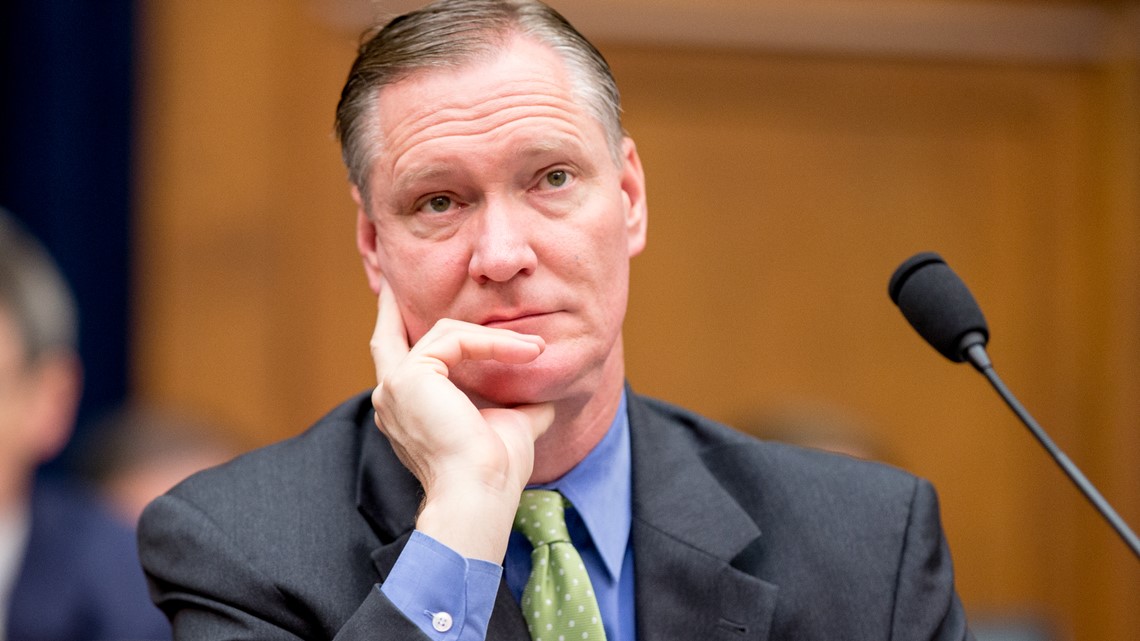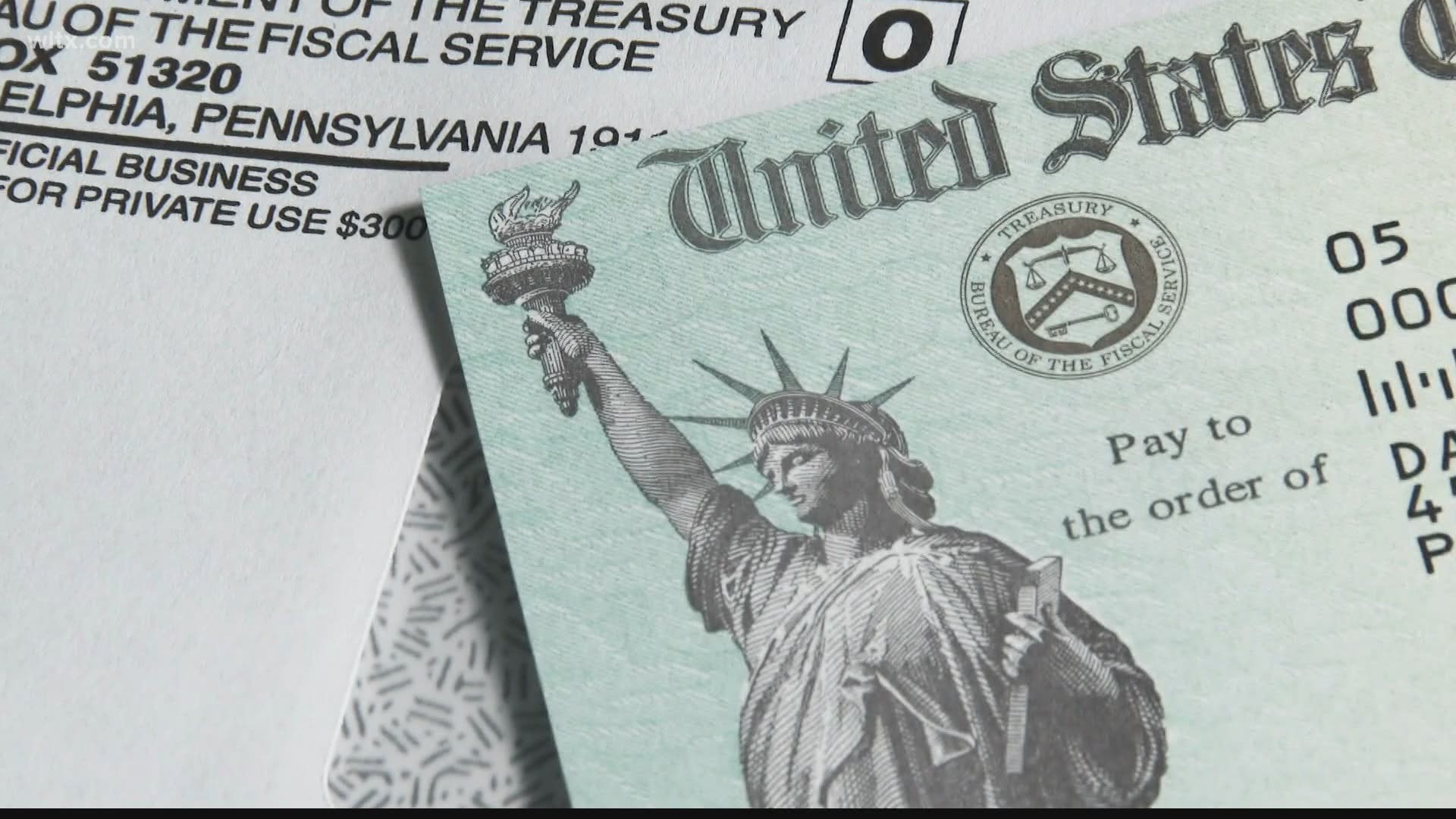WASHINGTON — A Republican House Representative on Thursday suggested giving $1,400 stimulus checks to Americans who get the coronavirus vaccine.
Rep. Steve Stivers, R-Ohio, during an interview with Yahoo! Finance, pressed the importance of herd immunity and said he'd "be willing to sign off on a stimulus check of $1,400 for people who take the vaccine."
Before being sworn into office, President Joe Biden announced a $1.9 trillion coronavirus plan which included $1,400 stimulus checks to struggling Americans. The “American Rescue Plan” would deliver another round of aid to stabilize the economy while the public health effort seeks the upper hand on the pandemic.
“I hope the administration will look at that option because we actually buy something with our $1,400 — and that’s herd immunity,” said Stivers.
The idea of paying people to get the COVID-19 vaccine has been floated before. Back in December, former presidential candidate and U.S. Rep. John Delaney pitched $1,500 checks for Americans getting coronavirus shots.
Republican lawmakers have been skeptical about Biden's proposed legislation. Not only does it include the $1,400 checks, but it also includes raising the minimum wage to $15 an hour and increasingly focused on the federal budget deficit that ballooned under President Donald Trump.
Could this legislation be passed without Republican votes? Not entirely. To clear the evenly split 50-50 Senate, at least 60 votes will be needed to pass the $1.9 trillion plan. Without Republican buy-in, Biden’s proposal could pass with a simple majority under budget reconciliation -- but that's a time-consuming process that would limit what Democrats are able to accomplish.
House Speaker Nancy Pelosi told reporters on Thursday morning that Democrats will be "completely ready" to go to the floor to pass a coronavirus package during the first week in February.
Stivers acknowledged that there will be disagreements between Democratic congress members and Biden's administration, but said: "Hopefully, there are things that we can come together on."
“It should be debt for the right things,” he said. “The quickest thing we need to do if we really want to help the American people, is get this economy turned back on — get people back to work, get kids back in school, get ourselves some herd immunity, get the vaccine distributed as quick as we can and get the uptake rate up. That's why I'd be willing to accept a $1,400 stimulus check if people are willing to take the vaccine.”
For most people, the new coronavirus causes mild or moderate symptoms. For some, especially older adults and people with existing health problems, it can cause more severe illness, including pneumonia and death.
The United States has more than 24 million confirmed cases of COVID-19, according to data from Johns Hopkins University.
As of Friday, the U.S. had more than 410,000 deaths from the virus. Worldwide, there are more than 97 million confirmed cases with more than 2 million deaths.
The Associated Press contributed to this report.


When could the 3rd stimulus checks be released?
During the first round of stimulus checks in April 2020, it took about two weeks for the federal government to start distributing the money. It took around one week for the second round of checks, worth $600, in early January.
Assuming Congress is able to pass Biden's relief bill in mid-February to mid-March, Americans could receive the third stimulus checks anywhere from late February to late March.
So, in short, a third check isn't coming for probably at least another month.
Who is eligible for the second stimulus check?
Because the second stimulus check passed by Congress is half the size of the first check, not everyone who got a payment in the Spring will get money this time around.
If your 2019 reported income was $75,000 or less, under the current plan you would be eligible to receive the full $600 one-time payment. Couples who reported an adjusted gross income up to $150,000 would receive $1,200.
If you reported making more than $75,000, you would receive partial payments dropping by $5 for every $100 above the income limits.
So an individual who earned $86,900, for example, would get $5 under Congress' approved plan. During the first round of direct money, the money phased out at $99,000 for a single filer.
If you're a couple making $174,000 or more, or a head of household making more than $124,500, you also won't get a second stimulus check.
Why haven't I received my stimulus?
There are a number of reasons why you may not have received your $600 stimulus check. For one, you may make too much money to qualify now that it's a smaller amount than the first round of checks.
If you were expecting a check but still didn't receive it, the IRS did run into some initial problems. Many people who filed their taxes with an online preparation service initially found that their payment did not make it to them directly. That is because money may have been sent to a temporary bank account established by the tax preparer, which is no long active. By law, the financial institution must return payments sent to closed or inactive accounts.
Since then, a number of tax preparation companies said that they were able to resolve the issues.
While the IRS continues to deliver the payments, eligible taxpayers who don’t receive a payment, or received less than they should have, can claim it using the Recovery Rebate Credit when they file their 2020 tax return.

